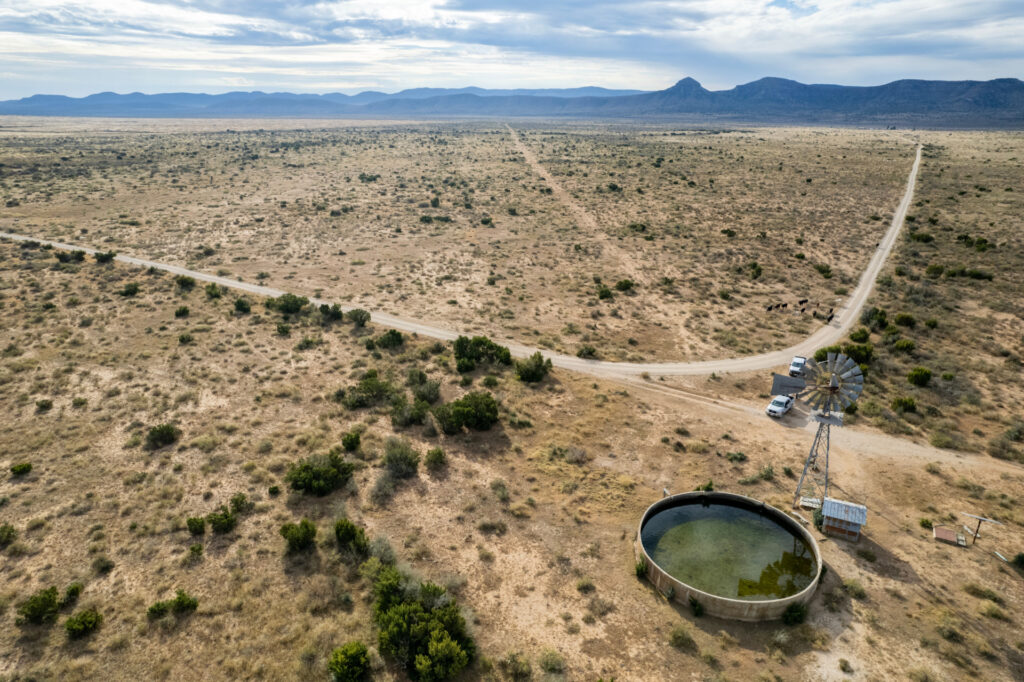The Texas Well Owner Network is hosting upcoming events in West Texas Oct. 10 to 13 to allow water well screenings for area residents.
The events include one “Well Educated” water well screening in Alpine and two “Well Informed” water well screenings in Fort Stockton and Pecos. There will be a $15 per-sample cost for the water screening.
Joel Pigg, Texas A&M AgriLife Extension Service program specialist and Texas Well Owner Network coordinator, Bryan-College Station, said the program is for Texas residents who depend on household wells for their water needs.
“The TWON program was established to help well owners become familiar with Texas groundwater resources, septic system maintenance, well maintenance and construction, and water quality and treatment,” he said. “It allows them to learn more about how to improve and protect their community water resources.”
Well water sampling and meeting information
Water samples will be screened for contaminants, including total coliform bacteria, E. coli, arsenic, nitrate-nitrogen content and salinity.
For the Alpine, Marfa, Fort Davis, Sanderson and Van Horn areas, water samples can be dropped off from 8 to 10 a.m. at the following locations on Oct. 11.
- AgriLife Extension office for Brewster County, 2201 Farm-to-Market Road 703, Alpine.
- Brewster County Groundwater Conservation District, GCD, office 201 W. Ave. E, Alpine.
- Jeff Davis County Underground Water Conservation District, 113 State St., Fort Davis.
- AgriLife Extension office for Presidio County, 300 N. Highland St., Courthouse Second Floor in Marfa.
- AgriLife Extension office for Terrell County, 105 E. Hackberry St., Courthouse Square, Sanderson.
- AgriLife Extension office for Culberson County, 300 La Caverna St., Van Horn.
- Culberson County GCD office, 1300 W. Broadway St., Van Horn.
The follow-up meeting to explain the results of the screenings will be on Oct. 12 from 8 a.m. to noon at the Big Bend Telephone Conference Room, 808 N.5th St., Alpine.
For the Fort Stockton area, water samples can be dropped off from 8-10 a.m. Oct. 10 at the AgriLife Extension office for Pecos County, 100 E. Division St., Fort Stockton, or the Middle Pecos GCD office, 405 N. Spring Drive, Fort Stockton.
The follow-up meeting to explain the results of the screenings will be from 8-10 a.m. Oct. 11 at the Middle Pecos GCD office.
For the Reeves County area, water samples can be dropped off from 8-10 a.m. Oct. 10 at the AgriLife Extension office for Reeves County, 700 W. Daggett St., or the Reeves County GCD office, 119 S. Cedar St., both in Pecos.
The follow-up meeting to explain the results of the screenings will be from 10 a.m.-noon Oct. 12 at the Waters of West Texas Symposium at the Reeves County Civic Center, 1500 S. Cedar St., Pecos.
Sampling instructions
Pigg said area residents wanting to have their well water screened should pick up a sample bag, bottle and instructions from their local AgriLife Extension office.
“It is very important that only sampling bags and bottles from the AgriLife Extension offices be used, and all instructions for proper sampling are followed to ensure accurate results,” he said.
Pigg said it is essential for those submitting samples to attend the appropriate follow-up meeting to receive results, learn corrective measures for identified problems and improve their understanding of private well management.
Well water contaminants, concerns
John Smith, AgriLife Extension program specialist, Bryan-College Station, said research shows the presence of E. coli bacteria in water indicates that waste from humans or warm-blooded animals may have contaminated the water. Water contaminated with E. coli is more likely to also have pathogens that can cause diarrhea, cramps, nausea or other symptoms.
The presence of nitrate-nitrogen in well water is also a concern, and water with nitrate-nitrogen at levels of 10 parts per million is considered unsafe for human consumption, he said.
“These nitrate levels above 10 parts per million can disrupt the ability of blood to carry oxygen throughout the body, resulting in a condition called methemoglobinemia,” Pigg said. “Infants less than 6 months of age and young livestock are most susceptible to this.”
Salinity, as measured by total dissolved solids, will also be determined for each sample, he said. Water with high levels may leave deposits and have a salty taste. Using water with high levels for irrigation may damage soil or plants.
Sign up for HPJ Insights
Our weekly newsletter delivers the latest news straight to your inbox including breaking news, our exclusive columns and much more.
To learn more about the programs offered through the network or to find additional publications and resources, visit twon.tamu.edu. For more information on the water screening, contact Pigg at 979-845-1461 or [email protected] or Smith at 979-204-0573 or [email protected].



